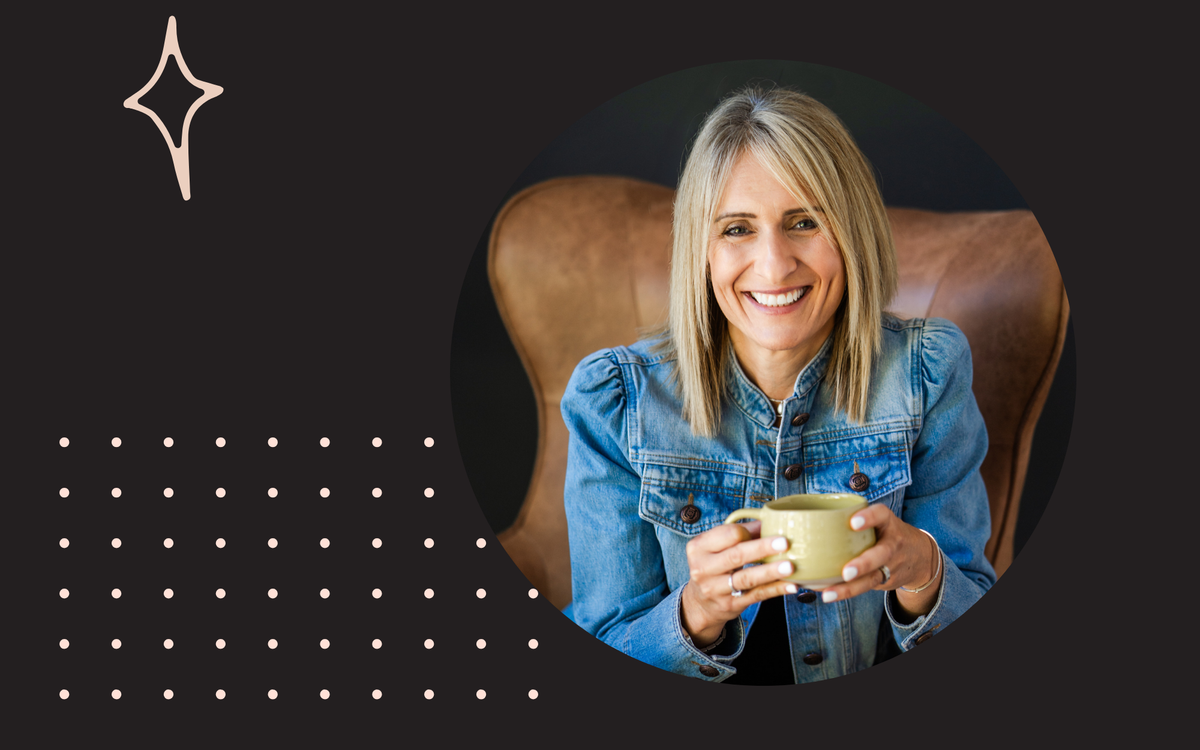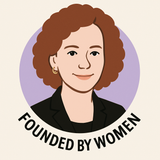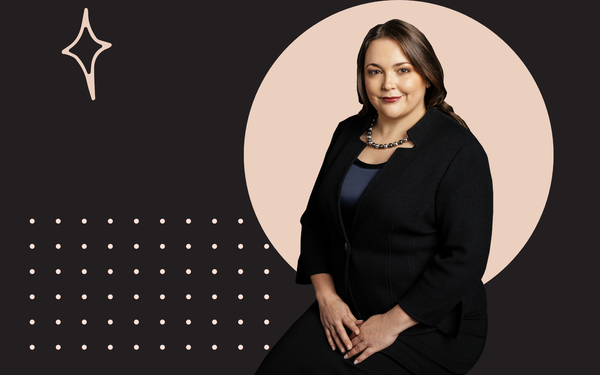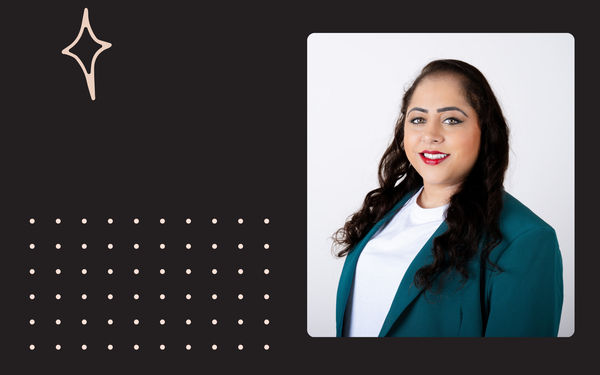From "You'll Go Nowhere" to Best-Selling Author: How Sarah Farmer Transformed Childhood Trauma and Workplace Toxicity into a Mission to Defeat Imposter Syndrome

When Sarah Farmer's headmaster told her at sixteen that she'd "go nowhere and become nothing," he probably didn't imagine she'd one day be helping C-suite executives and corporate CEOs overcome the very self-doubt his words helped instill. But that devastating moment, combined with years of feeling "different" and being treated poorly for it, became the foundation for both her deepest struggles and her greatest strengths.
Sarah's journey from a seven-year-old who felt she didn't belong to a multi-award-winning executive coach and founder of Bright & Brilliant Ltd. wasn't linear or easy. Despite earning a degree in Applied Chemistry and excelling in the pharmaceutical industry, that inner voice of doubt played loud throughout her career. Even professional success felt fragile, as if someone would eventually realize it was all a fluke.
The breaking point came after she was made redundant following maternity leave and then found herself in what she describes as a "horribly toxic environment" that battered what little self-esteem she had left. That's when Sarah decided something had to change. She began counseling, started a journey of self-discovery that continues today, and eventually stepped out on her own to build something different.
Today, Sarah specializes in helping leaders overcome imposter syndrome and develop what she calls "unshakeable self-belief." Her best-selling book "Leader Unleashed" was shortlisted for Leadership Book of the Year, and her SPARK online program offers an accessible path from imposter to empowered. Her client base spans from small business owners to c-suite execs overseeing hundreds of employees.
But Sarah's approach to imposter syndrome challenges conventional wisdom. She doesn't believe it hits women harder than men; rather, she thinks women are simply more willing to talk about it while men hide it better. Her perspective is that imposter syndrome isn't a women's flaw to fix but a cultural and organizational issue requiring systemic change.
In this conversation, Sarah shares how she rebuilt her confidence after devastating setbacks, why she pivoted her business model during COVID while raising two neurodivergent teenagers, and her belief that imposter syndrome is ultimately a choice. Her story reveals how our deepest wounds can become our greatest sources of strength when we're willing to do the hard work of healing and transformation.
Q1: What was your experience with Imposter Syndrome and how has it shaped your career?
My experience with Imposter Syndrome started early. I was seven when I first remember feeling “different” and being treated appallingly because of it. That sense of not belonging quietly took root. By sixteen, when my headmaster told me I’d “go nowhere and become nothing,” it cemented the belief that I was ‘bad’ & would never be enough.
Even as I earned a degree in Applied Chemistry (which still blows my mind) and excelled in the pharmaceutical industry, that inner voice of doubt played loud.
Every success felt fragile, as if someone would one day realise it was a fluke. Then, when I was made redundant after returning from maternity leave with my first born, those old fears really took hold.
I went on to work in a horribly toxic environment that battered what little self-esteem I had left. That was my breaking point. I decided something had to change. I began counselling and started to truly understand myself — the start of a lifelong journey of self-discovery that I’m still on today.
I took back control, rebuilt my confidence, and eventually after a few more skirmishes with the imposter monster, stepped out on my own.
Now, I help others do the same; turning self-doubt into an unshakeable self-belief and proving that confidence isn’t something we’re born with; it’s something we can all learn to cultivate.
Q2: What was the hardest part of building Bright & Brilliant to its current successful status?
The hardest part of building Bright & Brilliant was staying strong when everything around me felt uncertain. I pivoted the business from leadership training to coaching during Covid while raising two neurodivergent teenagers facing significant mental-health challenges. At times, it was impossible to be both the parent and leader I wanted to be.
At the start, I made plenty of mistakes investing in the wrong things for the wrong reasons, chasing other people’s definitions of success instead of my own. Finances grew tight, and I had to borrow to keep the business afloat. Those moments taught me what no MBA ever could: clarity, courage and having an inspiring ‘why’ matter more than any ‘quick fix’.
Writing Leader Unleashed almost broke me. Balancing client work, self-development, family and self-doubt was relentless. But that experience forced me to dig deeper, to back myself, and to keep moving forward even when no one was watching.
Bright & Brilliant was never built on ease or certainty. It was built on courage, determination, and a belief that in the toughest times, we can shine even more brightly.
Q3: Why does Imposter Syndrome seem to hit women in the workplace harder than it does men?
“Women talk about it more. Men just hide it better.”
Sarah Farmer Executive Coach
I don’t believe Imposter Syndrome hits women harder — I think women are simply more willing to talk about it. Many men feel the same doubts but have been taught to mask them for fear of ridicule.
That said, women do face conditions that amplify imposter-led beliefs. From an early age, girls are often socialised to please, to be modest, and to seek approval — lessons that can later clash with the assertiveness expected in leadership.
In the workplace, women still shoulder most caring responsibilities. They’re underrepresented in senior roles or juggling parenting and leadership more than their male counterparts. They’re also more likely to have their competence questioned and to be judged on tone and likability rather than results. The higher they climb, the lonelier and more visible they become, which can magnify self-doubt even further.
Imposter Syndrome isn’t a women’s flaw to fix; it’s a cultural and organisational issue. The solution lies in workplaces that normalise vulnerability and empathy, celebrate diverse leadership styles, and make belonging a shared responsibility, not another burden for women to carry.
Q4: What are three takeaway pieces of advice you would offer female leaders to enable them to reach their full potential?
The first thing I tell every leader I work with is this: Imposter Syndrome is a choice. It may be an unconscious choice right now, but you can choose whether to listen to it in the future. You can take control of it and shine. The first step is always self-awareness: noticing the stories you tell yourself, understanding your triggers, and recognising that your beliefs are not facts.
Second, reframe fear as fuel. Courage isn’t the absence of fear; it’s taking action despite it. Every time you step forward when your instinct is to hold back, you rewire your brain for confidence.
And finally, lead with authenticity, not armour. You don’t need to copy outdated leadership styles or hide behind perfection. The leaders who truly inspire are the ones who show humanity, empathy, and emotional intelligence. When you lead from who you are, not who you think you should be, you stop feeling like an imposter and start feeling unstoppable.
Learn more at brightandbrilliant.com/spark-online
Are you a woman leader with an inspiring journey to tell? Founded by Women is on a mission to elevate and amplify the voices of women making an impact.
If you're breaking barriers, driving change, or paving the way for others, we’d love to feature your story. Get in touch with us today!
👉 hi@foundedbywomen.org


